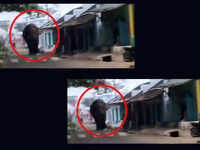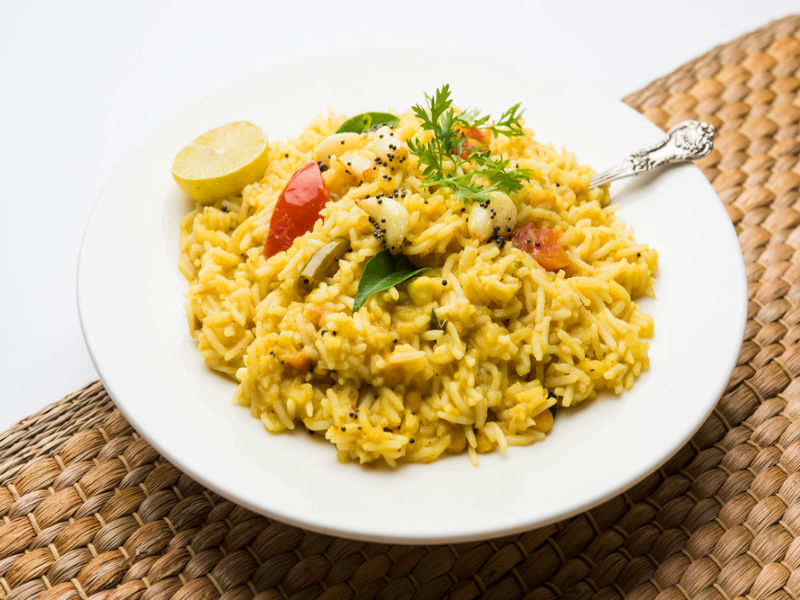Gritty North Karnataka women powered anti-liquor march
Nithya Mandyam | TNN | Feb 1, 2019, 07:54 IST
BENGALURU: Sheer energy and grit may have marked the anti-liquor march of 4,000 rural women from Chitradurga to Bengaluru. But the 200km-barefoot procession was the culmination of a series of events that failed on the ground.
Grameena Coolie Karmikara Sanghathane (GCKS) and Navajeevan Mahila Okkoota, which had individually tried their luck in closing down certain liquor shops in Raichur, Tumakuru and other places, but failed, came together for the Madya Nisheda Andolana (Liquor Ban Movement). Most protesters were agricultural labourers or from small landholding families in north Karnataka.
In the wake of failure to shut liquor shops, the leaders of the two organizations decided to join forces. Nearly 40,000 women attended a meeting held in Raichur in 2017. Buoyant by the turnout, they escalated their struggle, said Swarna Bhat, a social activist from Mangaluru, who has been associated with GCKS for 20 years.
GCKS has been working to give rural workers in Karnataka a voice while Navajeevan Mahila Okkoota addresses issues faced by workers dependent on the Mahatma Gandhi National Rural Employment Guarantee Scheme.
Swarna Bhat is one of the moving forces behind the march. On listening to the tales of how liquor had wrought havoc in the lives of these women, Swarna and associates decided to launch a jail bharo movement where they picketed government offices. Three hundred women took part in the agitation in Raichur and it was more than evident that the movement has struck an emotional chord with rural women. “Every time the women would cry their heart out, we could feel the pain. We knew we had to fight for these innocent women facing the wrath of their drunk husbands,” she added.
“On October 29, 2017, we initiated the movement to ban liquor in the presence of activist Medha Patkar. We went on a dharna for 71 days in Raichur. Women from various places joined us, but not a single politician did,” she recalled.
On October 2, 2018, the activists decided to launch ‘Madya Nisheda Andolana’ with a march to the seat of power. “Considering the horrible weather, we pushed the march to January so that the women could at least walk in peace,” Swarna said.
Women began their march from Chitradurga on January 19 and reached the state capital on January 29. They assembled at Freedom Park on January 30.
Swarna, who shifted to north Karnataka after her husband was transferred to the region, said: “We found the women from north Karnataka very understanding and cooperative. The fire in their eyes is matched by the concern for their family. This kind of a movement is only possible in north Karnataka and nowhere else.”
Cops send protesters back to their villages
The women protesters headed back to their villages late Wednesday night.
“On Wednesday night, we gathered on the steps of Vidhana Soudha, and a nine-member delegation met the chief minister, who responded in an insensitive manner. Soon after, three busloads of protesters were picked up by police and later released at Upparpet police station,” said a woman.
Police, however, said they simply transported the women to Upparpet. “We loaded 60% of the women on to 50-60 KSRTC buses that headed back to their villages, while the remaining 40% were sent home by train,” said a police officer.
As of now, the women are deliberating on their next steps. They hope the budget session of the state legislature beginning from February 6 will take up the issue.
Grameena Coolie Karmikara Sanghathane (GCKS) and Navajeevan Mahila Okkoota, which had individually tried their luck in closing down certain liquor shops in Raichur, Tumakuru and other places, but failed, came together for the Madya Nisheda Andolana (Liquor Ban Movement). Most protesters were agricultural labourers or from small landholding families in north Karnataka.
In the wake of failure to shut liquor shops, the leaders of the two organizations decided to join forces. Nearly 40,000 women attended a meeting held in Raichur in 2017. Buoyant by the turnout, they escalated their struggle, said Swarna Bhat, a social activist from Mangaluru, who has been associated with GCKS for 20 years.
GCKS has been working to give rural workers in Karnataka a voice while Navajeevan Mahila Okkoota addresses issues faced by workers dependent on the Mahatma Gandhi National Rural Employment Guarantee Scheme.
Swarna Bhat is one of the moving forces behind the march. On listening to the tales of how liquor had wrought havoc in the lives of these women, Swarna and associates decided to launch a jail bharo movement where they picketed government offices. Three hundred women took part in the agitation in Raichur and it was more than evident that the movement has struck an emotional chord with rural women. “Every time the women would cry their heart out, we could feel the pain. We knew we had to fight for these innocent women facing the wrath of their drunk husbands,” she added.
“On October 29, 2017, we initiated the movement to ban liquor in the presence of activist Medha Patkar. We went on a dharna for 71 days in Raichur. Women from various places joined us, but not a single politician did,” she recalled.
On October 2, 2018, the activists decided to launch ‘Madya Nisheda Andolana’ with a march to the seat of power. “Considering the horrible weather, we pushed the march to January so that the women could at least walk in peace,” Swarna said.
Women began their march from Chitradurga on January 19 and reached the state capital on January 29. They assembled at Freedom Park on January 30.
Swarna, who shifted to north Karnataka after her husband was transferred to the region, said: “We found the women from north Karnataka very understanding and cooperative. The fire in their eyes is matched by the concern for their family. This kind of a movement is only possible in north Karnataka and nowhere else.”
Cops send protesters back to their villages
The women protesters headed back to their villages late Wednesday night.
“On Wednesday night, we gathered on the steps of Vidhana Soudha, and a nine-member delegation met the chief minister, who responded in an insensitive manner. Soon after, three busloads of protesters were picked up by police and later released at Upparpet police station,” said a woman.
Police, however, said they simply transported the women to Upparpet. “We loaded 60% of the women on to 50-60 KSRTC buses that headed back to their villages, while the remaining 40% were sent home by train,” said a police officer.
As of now, the women are deliberating on their next steps. They hope the budget session of the state legislature beginning from February 6 will take up the issue.



































All Comments ()+^ Back to Top
Refrain from posting comments that are obscene, defamatory or inflammatory, and do not indulge in personal attacks, name calling or inciting hatred against any community. Help us delete comments that do not follow these guidelines by marking them offensive. Let's work together to keep the conversation civil.
HIDE